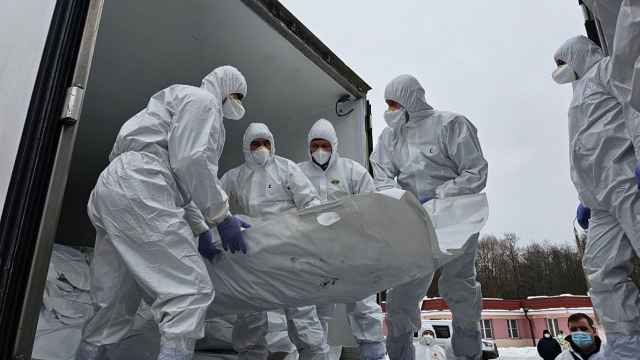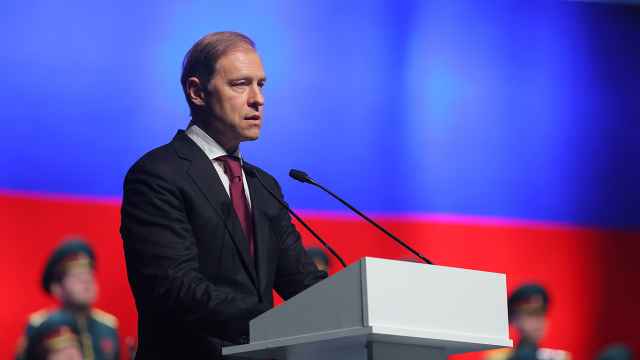President Vladimir Putin’s proposal to channel part of the National Welfare Fund into infrastructure projects could be a good alternative to using budget funds, a Finance Ministry official said Friday.
“We support the idea of using alternative investment mechanisms, not only budget funds,” Deputy Finance Minister Alexei Moiseyev said on the sidelines of a conference organized by The Moscow Times.
Spending part of the money accumulated in the $87.5 billion rainy-day fund on infrastructure will result in Russia cutting investment in the sovereign debts of Western countries next year, Finance Minister Anton Siluanov told reporters.
The ministry plans to revise the fund’s investment structure and use part of it to buy “safe but high-yield domestic bonds,” said Siluanov, who didn’t participate in the conference.
One option is buying 100 billion rubles ($3.26 billion) worth of so-called infrastructure bonds to be issued by Russian Railways, he said.
Putin ordered the Finance Ministry last week to submit proposals on investing part of the National Welfare Fund in domestic securities “related to implementing infrastructure projects.”
The Reserve Fund and the National Welfare Fund will jointly account for about 9 percent of the gross domestic product by the end of this year, and “that means that we have a certain safety net,” Putin said.
The president voiced the idea in his state-of-the-nation address, saying that up to 100 billion rubles could be spent as early as next year after a special entity, the Russian Financial Agency, is established to manage the two funds.
Siluanov said the State Duma will consider a bill to create such an agency early next year.
Investing part of the rainy-day funds in infrastructure projects is the right step to take, said Natalya Orlova, chief economist at Alfa Bank.
“Only the government has such long-term funds, and no one except for the government will be able to provide money for such projects,” said Orlova, who participated in the conference.
If the funds remain idle, the government might be tempted to spend them to solve financial problems rather than invest it, she said.
The National Welfare Fund was set up in 2008 to accumulate windfall oil and gas revenues, which could be used as a safety net to cope with economic crises.
Moiseyev pointed out that this year was critical for ensuring macroeconomic stability, as the government had completed an important stage of reforms. These include a decision by the Central Bank to shift to a floating exchange rate in 2015 and the government’s efforts to tie spending levels to oil prices.
These two measures allow for stability even if the situation in the global economy gets worse, Moiseyev said.
Related articles:
A Message from The Moscow Times:
Dear readers,
We are facing unprecedented challenges. Russia's Prosecutor General's Office has designated The Moscow Times as an "undesirable" organization, criminalizing our work and putting our staff at risk of prosecution. This follows our earlier unjust labeling as a "foreign agent."
These actions are direct attempts to silence independent journalism in Russia. The authorities claim our work "discredits the decisions of the Russian leadership." We see things differently: we strive to provide accurate, unbiased reporting on Russia.
We, the journalists of The Moscow Times, refuse to be silenced. But to continue our work, we need your help.
Your support, no matter how small, makes a world of difference. If you can, please support us monthly starting from just $2. It's quick to set up, and every contribution makes a significant impact.
By supporting The Moscow Times, you're defending open, independent journalism in the face of repression. Thank you for standing with us.
Remind me later.





